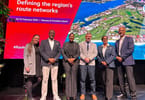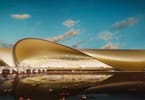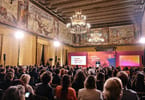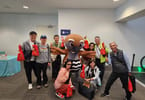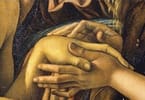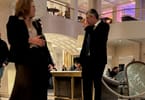Lebanon’s boom time in 1997 came about as windfall from the late Prime Minister Rafik Hariri. Through him and his family, the once-Paris of the Middle East, then ravaged by decades of civil war, came back to life. After his re-election to power as PM, Hariri gave Lebanon a major facelift and a much needed-shot-in-the-arm: a socio-economic, tourism jumpstart by sharing his fortunes. It made the streets of downtown Beirut glitter in the late ‘90s and at the turn of the millennium, sign that nation-building had transcended the 15-year civil war of the ‘70s.
Generous charity and effective leadership course through the Hariri blood. Hariri’s sister, Bahia Baha’a Elddine Hariri, became a prime mover of progress and a voice of peace. It may be an understatement to introduce her as the sibling of the premier – for she herself became a key figure in the government strong enough to reengineer the fate of Lebanon.
I met her first in Cairo at the Global Economic Forum where she addressed the world’s IT professionals including Ignite.com’s chairman Neil Bush, the brother of US President George W. Bush. Bahia Hariri’s presence made the crowd stand in silence as she exuded an air of confidence demanding nothing short of utmost respect and awe. I marveled at how she held a circle of think tanks speechless as they listened intently to her plea to educate the youth and make all computer literate. Then in Lebanon, I flew to meet her. We sat down together at her opulent Saida residence in Beirut.
Mrs. Hariri’s portfolio, least to describe, is amazing. It spans no less than five pages of bio, already summarized for easier reading. She held several posts including the Ambassador of Goodwill for the UNESCO, deputy in the Lebanese Parliament, head of the Parliamentarian Committee for Education in the Lebanese Parliament, member in the Parliamentarian Committee for Child’s Rights, member in the Lebanese Parliamentarian Committee for Foreign Affairs, vice president of the Woman’s Committee in the Arab Inter-Parliamentary Union, head of the non-governmental organization Lebanese Scouts, Head of the non-governmental organization Culture and Environment, vice president for the Women’s Committee in the Arab Inter-parliamentary Union, among the most prominent. This was an abbreviated version; the dossier went on endlessly.
She was the keynote speaker and initiator of many Arab women forums attended by Arab First Ladies, women ministers and MPs, and heads of women’s unions. Bahia Hariri took up the challenge of protecting the plight of her Arab sisters. She stressed in meetings the importance of working together the parliaments in the Arab region especially on the issue of employment. When the parliaments did eventually lock hands, she had succeeded as committee head of the Arab inter-parliamentary union.
She said: “Women are the core of today’s society, the engine of the family and the community. We face a dilemma that Arab women suffer from several problems that weaken our social and political structures. Women are not just consumers of styles and cosmetics or sentimental creatures who cannot take decisions. Women’s problems are not restricted to husband and children alone. Most problems stem from the negligence of women living in poor, rural areas.” Her concern over women’s concerns drove her to devote energy and time to legislations protecting their rights and freedom.
Such laws covered Arab women traveling without permission by her husband, right of women to practice trade, and the benefits women should get from jobs in employee cooperatives. “I admit, I consider women as the lesser sex, the prominent, stronger women accounting only for 10 percent of the female population in the Arab world.”
In trying to unify the women, she fails to confirm the fusion of the Israeli and Palestinian women to solve the crisis. “Is it not the Palestinian woman suffering as her children get drawn into the clash? The Arab woman is not the maker of war but only found herself in the middle of conflict. I am for educating women to ultimately lead her to liberation and economic freedom. Her rights require immediate confirmation before national and international courts of law.”
Born on 23rd of June 1952 in Saida, Madam Hariri grew up in an intelligent and well-to-do household. She graduated in Beirut with a diploma in education and worked as a teacher in the Saida National Schools from 1970 to 1979. Her hobby, when time permits, includes reading history and biographies of world visionaries – like herself. Books, raising better children, education, reducing illiteracy she believes will liberate women from oppression.
Madam Hariri keeps the legacy of her brother Rafik alive. After his assassination February 14, 2004 in downtown Beirut, she picked up the baton where her where her sibling abruptly dropped it. Bahia goes beyond expanding the multi-million dollar downtown complex – Lebanese Company for the Development and Reconstruction of Beirut aka SOLIDERE – considered Rafik’s brainchild and barometer of Lebanese economy. She looks southward for alternatives in tourism offers.
Still devastated by the attack and the most recent war, she breathes life to her new project, her own hometown of Sidon – a destination in the south that has ample tourism potentials. Sidon used to be an Israeli occupied area until the troops pulled out a couple of years ago.
“Laws are in place promoting the ideas of Rafik Hariri in presenting a country not only as cultural destination, but one that carries a message of justice, peace and order. My aim is to demonstrate tourism interests not just in the religious and heritage aspects, but also in our various sites. However, we recognize this requires an ideal environment for tourism plans to work out,” added Hariri.
Arabs particularly Gulf State families seek a more ‘conservative’ and wholesome family-type holiday experience which Sidon offers. And huge projects have been initiated through the Hariri Foundation since 17 years ago.
“We brought back to life south Lebanese tourism infrastructure destroyed in war. It took a lot of time and effort to prepare Saida for tourism. Sadly, it was Rafik Hariri’s dream he’d never see come true,” she said.
WHAT TO TAKE AWAY FROM THIS ARTICLE:
- She held several posts including the Ambassador of Goodwill for the UNESCO, deputy in the Lebanese Parliament, head of the Parliamentarian Committee for Education in the Lebanese Parliament, member in the Parliamentarian Committee for Child's Rights, member in the Lebanese Parliamentarian Committee for Foreign Affairs, vice president of the Woman's Committee in the Arab Inter-Parliamentary Union, head of the non-governmental organization Lebanese Scouts, Head of the non-governmental organization Culture and Environment, vice president for the Women's Committee in the Arab Inter-parliamentary Union, among the most prominent.
- It made the streets of downtown Beirut glitter in the late ‘90s and at the turn of the millennium, sign that nation-building had transcended the 15-year civil war of the ‘70s.
- In trying to unify the women, she fails to confirm the fusion of the Israeli and Palestinian women to solve the crisis.




